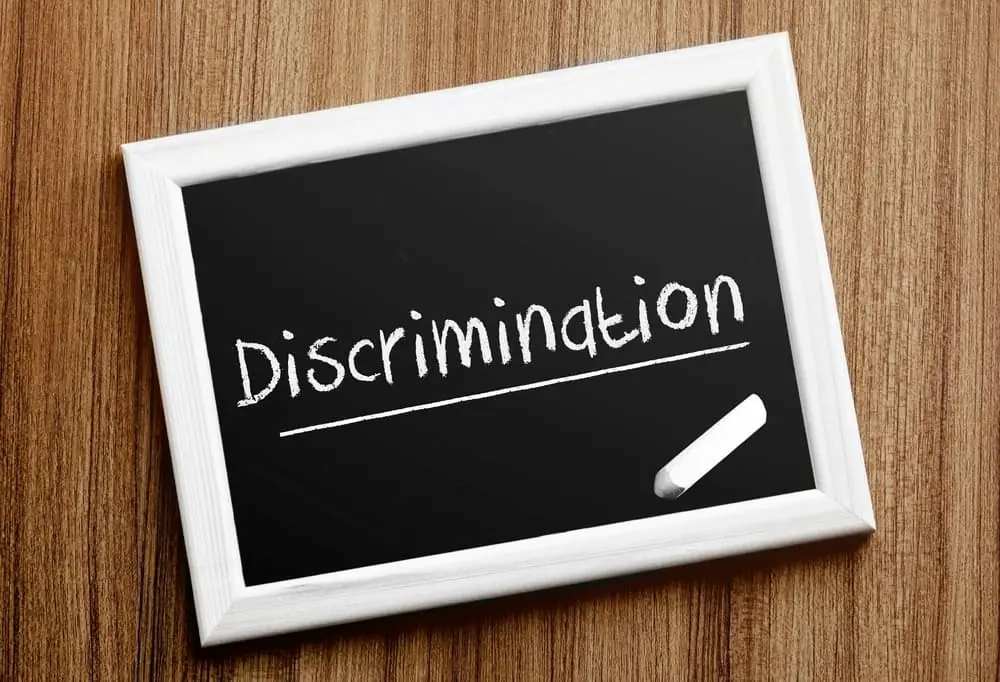If you are a disabled worker in California, you need to be aware of your rights and protections. Discrimination against individuals with disabilities in the workplace is illegal, and there are laws in place to ensure that you are treated fairly and afforded equal opportunities. These laws include the California Fair Employment and Housing Act (FEHA) and the Americans with Disabilities Act (ADA).
Under these laws, disabled workers have the right to reasonable accommodations, protection against harassment and retaliation, and access to equal employment opportunities. If you believe your rights are being violated, seek legal advice from a California workplace discrimination attorney who can guide you through the process of asserting your rights and holding employers accountable. Contact a seasoned California workplace discrimination lawyer near you to understand how to protect your rights and pursue justice in your workplace.
Schedule a Free Case Evaluation
Defining “Disability” Under California Law
Under California law, the definition of disability is broader than that of federal law. California’s Fair Employment and Housing Act (FEHA) offers stronger protections to workers with disabilities. It includes physical and mental impairments that limit major life activities. This definition encompasses a wide range of conditions, both temporary and chronic, as long as they impact basic activities like working, walking, concentrating, or interacting with others. It is important to note that California’s FEHA provides broader protection in defining disability than the federal Americans with Disabilities Act (ADA).

Disability Discrimination: What It Looks Like
Disability discrimination can take many forms in the workplace, and it’s essential to be able to recognize these unlawful practices and understand the legal protections available to you as a disabled worker. Under federal laws such as the Americans with Disabilities Act (ADA), the Rehabilitation Act, and many state-level statutes, employees with disabilities are entitled to fair treatment, reasonable accommodations, and protection from both direct and indirect forms of discrimination.
Some common examples of disability discrimination include refusing to hire an otherwise qualified individual solely because of their disability, terminating an employee after they disclose a medical diagnosis, or demoting or reassigning a worker without justification due to a health condition. Employers may also deny promotions, pay raises, or access to job training and development opportunities simply because of an employee’s physical or mental impairment. Even subtle or covert actions—such as isolating workers, excluding them from team activities, or reducing their responsibilities—can be considered discriminatory if motivated by bias.
Harassment is another serious concern. Disabled employees may experience inappropriate comments, jokes, or persistent behaviors that create a hostile work environment. Whether the disability is visible, such as the use of a wheelchair, or invisible, like a chronic illness or mental health condition, the law provides equal protection. Discrimination doesn’t have to be overt or malicious to be unlawful—it simply needs to result in unfair treatment based on disability status.
You are protected not only if you have a disability but even if your employer merely believes you do. It means that perceived disabilities—conditions an employer assumes you have, even if incorrect—are also covered under anti-discrimination laws. Likewise, you are protected if you are associated with someone who has a disability, such as a spouse, child, or close family member.
You don’t have to face these challenges alone. A knowledgeable California workplace discrimination attorney can help you understand your legal rights, assess the strength of your case, and determine the best course of action. Whether it involves negotiating accommodations, filing a formal complaint with the EEOC, or pursuing litigation, your California workplace discrimination lawyer can serve as your advocate and help you seek the justice and workplace equality you deserve.
Your Right to Reasonable Accommodation
As a disabled worker in California, you have the right to reasonable accommodations that enable you to perform essential job functions. A reasonable accommodation is a modification or adjustment that allows you to overcome the limitations caused by your disability. Examples of reasonable accommodations include:

Modified Work Schedules
Modified work schedules can be an essential accommodation for employees who need flexibility due to ongoing medical treatments, rehabilitation, or regular doctor appointments. It might include adjusting start and end times, allowing split shifts, or permitting part-time hours temporarily during periods of treatment or recovery. These modifications enable employees to balance their health needs with their job responsibilities without fear of penalty or reprisal.
Assistive Technologies
Assistive technology and equipment play a critical role in supporting employees with a range of disabilities. These tools can include screen readers or magnification software for individuals with visual impairments, speech recognition programs for those with limited hand mobility, and communication devices for employees with hearing or speech challenges. Employers may also need to provide alternative input devices, such as adaptive keyboards or specialized software, to help workers perform their duties efficiently.
Ergonomic Equipment
Ergonomic equipment is another important form of accommodation, particularly for employees with musculoskeletal disorders or other physical limitations. Items like adjustable desks, supportive chairs, keyboard trays, footrests, and wrist supports can significantly reduce strain and improve comfort and productivity. In some cases, employers may need to arrange for workplace assessments to determine the most appropriate ergonomic solutions for a specific employee’s condition.
Remote Work
Remote work arrangements can be vital for employees whose disabilities impact mobility, stamina, or immune system health. Telecommuting may eliminate barriers such as long commutes, physically demanding office environments, or exposure to illness. Depending on the nature of the job, remote work can be offered on a full-time basis or combined with in-office days to create a hybrid schedule tailored to the employee’s needs.
Extended Medical Leave
Extended medical leave may also qualify as a reasonable accommodation under the Americans with Disabilities Act (ADA), particularly when additional time off is necessary for surgery, therapy, or recovery from a disabling condition. While not unlimited, this type of leave can go beyond what is typically offered under standard company policies or the Family and Medical Leave Act (FMLA). Employers are expected to evaluate whether granting additional unpaid leave will impose an undue hardship before denying it outright.
Employers are legally obligated to engage in a good-faith interactive process to identify and implement suitable accommodations. However, employers are not required to implement accommodations that create an “undue hardship,” but they must provide a reasonable justification for the decision. If you believe your request for reasonable accommodation has been denied unjustly, seek legal advice from a California employment attorney focused on discrimination in the workplace.
Medical Privacy and the Interactive Process
When requesting reasonable accommodations, employers may request medical documentation. However, it is important to remember that employers must respect the confidentiality of your medical information. The interactive process, which involves a collaborative conversation between you and your employer, should not be used to deny or dismiss your accommodation request. Failure to participate in this process may violate California law.
As an employee, you are not required to share your complete medical records with your employer. You are only obligated to provide documentation that supports your accommodation request. This documentation should focus on the impact of your disability on your ability to perform essential job functions.
Protections Under Federal Law: The Americans with Disabilities Act (ADA)
In addition to the California Fair Employment and Housing Act (FEHA), disabled workers in California are also protected by the Americans with Disabilities Act (ADA) at the federal level. The ADA and FEHA have key similarities and differences in terms of their scope and application. Being familiar with both laws is important to fully understand your rights and protections as a disabled worker in California.
The ADA applies to employers with 15 or more employees, while FEHA applies to employers with five or more employees. The ADA has a narrower definition of disability compared to FEHA. However, it is possible for employees to be protected under both laws, and the legal remedies may differ depending on the specific circumstances of each case.
Common Violations of Disabled Workers’ Rights in California
Unfortunately, disabled workers in California continue to face violations of their rights in the workplace. Some common violations include:
- Denial of reasonable accommodations without a proper assessment.
- Forced unpaid leave or termination instead of exploring reasonable accommodations.
- Harassment or hostility towards employees with visible or invisible disabilities.
- Retaliation for filing a complaint or requesting an accommodation.
- Constructive discharge involves forcing an employee to resign due to intolerable working conditions.
If you have experienced any of these violations or believe that your rights as a disabled worker have been violated in any way, it is vital to take action and seek legal advice from a qualified California workplace discrimination attorney.
Filing a Disability Discrimination Complaint in California

If you believe your rights as a disabled worker have been violated, there are steps you can take to assert your rights and seek justice. The following is a step-by-step guide to filing a disability discrimination complaint in California:
- Document the issue and request accommodation in writing: It is vital to record all incidents related to disability discrimination and make a written request for reasonable accommodations to your employer.
- File a complaint with the California Civil Rights Department (CRD) or Equal Employment Opportunity Commission (EEOC): Depending on the circumstances, you may need to file a complaint with either the CRD or the EEOC. It is important to understand the timelines for filing a complaint, which is generally within three years. Recent legislation has extended the period for filing with the CRD.
- Understand the timelines and seek a “right to sue” letter if necessary: It is important to be aware of the timelines associated with filing a complaint and seeking a “right to sue” letter if you wish to pursue a lawsuit.
- Seek legal representation: It is highly recommended to seek legal representation from a reputable California workplace discrimination attorney who can guide you through the process, protect your rights, and build a strong case.
A knowledgeable California workplace discrimination lawyer can provide invaluable assistance in navigating the legal process, meeting deadlines, preserving evidence, and building a strong case for your rights as a disabled worker.
Remedies Available to Disabled Workers
If you are successful in your claim or reach a settlement, there are potential remedies available to you as a disabled worker. These remedies may include:
- Back pay and lost earnings for the period of discrimination.
- Reinstatement to your previous position or job placement if that is not possible.
- Compensation for emotional distress caused by the discrimination.
- Punitive damages in cases of willful misconduct.
- Coverage of attorney’s fees and court costs.
- Policy changes or retraining mandates for employers to prevent future discrimination.
The specific remedies available to you will depend on the circumstances of your case and the applicable laws. Your California workplace discrimination attorney will understand your options and the potential outcomes of your claim.
If you have been denied reasonable accommodations, terminated after disclosing a disability, subjected to harassment or exclusion due to a medical condition, or if your employer is uncooperative in the interactive process, it is important to contact a California workplace discrimination lawyer for assistance.
A California workplace discrimination lawyer can evaluate your claim, represent you in negotiations or litigation, help preserve evidence, meet legal deadlines, and advocate for your rights as a disabled worker. Be sure to seek legal advice as early as possible to ensure your rights are protected, and justice is pursued in your workplace.
Empower Yourself and Protect Your Rights: Contact a California Workplace Discrimination Lawyer Today
As a disabled worker in California, you have the right to be treated fairly, accommodated, and provided with equal employment opportunities. California law strongly protects workers with disabilities, but it is essential to be informed about your rights and take action if you believe your rights have been violated.
If you have experienced discrimination or need help asserting your workplace rights, contacting an experienced California workplace discrimination attorney for a confidential consultation is important. An attorney can provide the guidance and support you need to protect your rights and pursue justice in your workplace.





